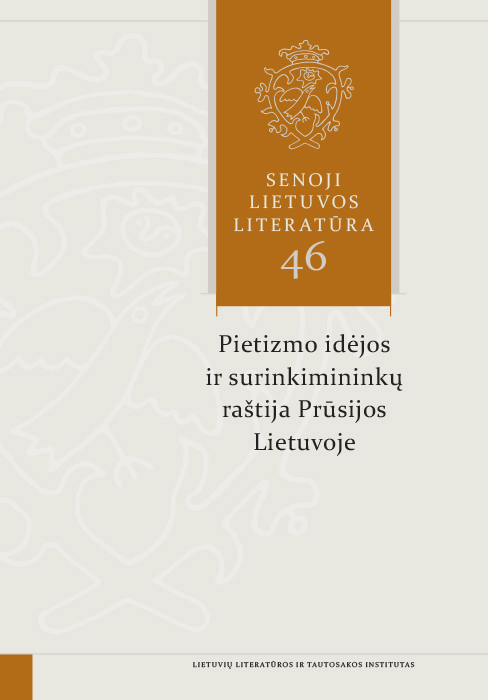Nineteenth-century Movements of Religious Awakening in Europe and Private Prayer and Hymn-singing Gatherings in Prussian Lithuania
Abstract
The singularity and independence of the surinkimininkai or worshippers’ movement in Prussian Lithuania, which presumably was not influenced by external factors, that is, by European movements of religious awakening, has been emphasised in historiography frequently and at length. Such a view is to some extent confirmed both by reliable historical nineteenth-century sources and testimonies of the contemporaries of that period. Moreover, one can perceive the unwillingness of the surinkimininkai to be identified and associated with the awakened of the new times that had spread from other European countries. Still, quite a few historical facts and hints emerge that suggest a possible interaction between the movement of the surinkimininkai in Prussian Lithuania and foreign neo-Pietist movements. A broad look at the European movement of Awakening allows discerning the possibilities of a reception of the links between regions and spiritual-religious ideas. It therefore makes one look back at the worshippers of Prussian Lithuania, and as for future research, a narrow and isolated viewpoint should give way to a broader one that would encompass a comparison with other regions of Europe.
Most read articles by the same author(s)
- Darius Barasa, Worshippers in Prussian Lithuania: The Scale of the Movement, Its Spread, and Its Image in the 1820s , Senoji Lietuvos literatūra: Vol. 46 (2018): Senoji Lietuvos literatūra
- Darius Barasa, Should Gottfried Ostermeyer be Considered an Amateur Historian? , Senoji Lietuvos literatūra: Vol. 41 (2016): Senoji Lietuvos literatūra
- Darius Barasa, Report of the consistory of Königsberg on religious societies functioning outside the Church in the districts of Königsberg and Gumbinnen , Senoji Lietuvos literatūra: Vol. 46 (2018): Senoji Lietuvos literatūra
